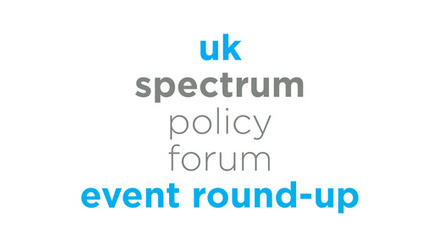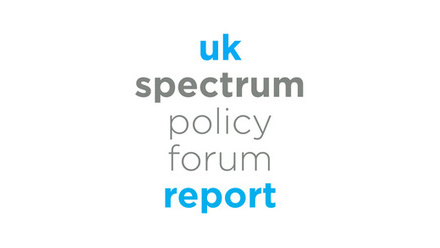UK SPF Cluster 1 & 4 Event Round-Up: 6G Spectrum
On Thursday 14 March, the UK SPF held a dual-Cluster virtual workshop to explore the future of use cases and applications of spectrum for 6G. Bringing together speakers from policymakers, mobile vendors and mobile operators, the workshop considered several benefits and possible efficiency gains from the use of 6G, as well as projected drivers for spectrum demand and potential candidate bands for terrestrial 6G as contemplated under WRC-27 agenda item 1.7.
Future workshops plan to enhance participation of incumbent space, terrestrial, or military spectrum users.
Cluster 1 Session: Future demand for 6G spectrum
The workshop emphasized real-world challenges for 6G technology, focusing on consumer benefits. Innovations should align with equipment life cycles, including end-of-life considerations and significant advancements.
One notable step and key driver forward involves enhancing spectral and energy efficiency for both 5G-Advanced and 6G. Designing for optimal energy efficiency involves balancing coverage and capacity, predicting traffic, and exploring various methods. From a policy standpoint, Europe should proactively shape the 6G spectrum roadmap, emphasizing priority and pioneering bands. Learning from past experiences, regulators must consider use cases and data rate requirements across urban, rural, and indoor scenarios.
Advancements in spectral efficiency should be integrated into newer generations of 5G to benefit the existing customer base, according to the speakers. The role and use cases of 6G extends beyond connectivity—it supports artificial intelligence (AI), positioning, augmented reality/virtual reality (AR/VR), and communication sensing. Understanding upcoming requirements is essential for effective use case penetration. Additionally, facilitating integration between different access technologies, including satellite communications, will be important.
To foster service innovation and capitalize on network capabilities as capacity demands increase, there was a view expressed by some speakers that spectrum sharing, and refarming of existing mobile bands, was crucial. Additionally, there was some agreement among some of the speakers / stakeholders present that additional spectrum for 6G (while adopting a technology-neutral approach) will be necessary – with some mobile industry speakers asserting that operators may need as much as 1 GHz of spectrum in addition to their existing holdings.
On the network side, stakeholders must enable the network APIs to match what the network is able to deliver with the demands of the services designed by the network operator. This should ensure better value for network use and simplified access to capabilities, benefiting mobile operators.
Cluster 4 Session: WRC-27 AI 1.7
In the second part of the session, the focus was on the WRC-23 approved AI 1.7 frequency bands. A mobile vendor provider an initial overview presentation of the WRC-27 AI-7 candidate bands for IMT/6G. As the ITU has started to organize within the working parties, industry should study the possibilities for the accommodation of IMT/6G in the WRC-23 AI1.7 candidate bands considering the incumbent services in those frequency ranges.
The first addressed is the band 4.4-4.8 GHz, which is an important NATO band used for aeronautical and military systems. The 4.5 – 4.8 GHz band is another important is FSS downlink as these are allocated to the FSS Allotment Plan band with geostationary orbital slots reserved for all ITU member states which is important for some developing nations.
In the 7GHz band the identified ranges - 7125-7250 MHz, 7250-7900 MHz, and 7125-8400 MHz – each have a primary incumbent terrestrial and/or space users. One objective of industry should be to map out the different users and possible use cases ahead of the next WRC. This exercise is particularly relevant when the incumbent spectrum use is a terrestrial or satellite military systems in NATO harmonised frequency bands. Other use cases such as space research service used for deep space communications and for tracking of space systems would need to be considered.
Military stakeholders in the virtual meeting expressed serious concerns about all the WRC-27 AI 1.7 candidate frequency bands given extensive current and planned use by important military systems including use of frequency bands which are harmonised at NATO level.
According to some mobile industry speakers and some stakeholders, for Europe to lead in the technological race for 6G, the 7125-8400 MHz is the best suited to allow deployments of macro-cell terrestrial IMT. Potential IMT identification in any WRC-27 AI 1.7 frequency band would need to consider and protect other relevant incumbent space and terrestrial radio systems (including military uses and GSO / NGSO space system uses).
There will be interesting and intensive discussions and debates in coming months and years on these topics in the lead up to WRC-27.
Slides
If you have any questions or comments, please contact the team below.

Sophie Greaves
Sophie Greaves is Associate Director for Digital Infrastructure at techUK, overseeing the Telecoms Programme, the Data Centres Programme, and the UK Spectrum Policy Forum.

Tales Gaspar
Tales has a background in law and economics, with previous experience in the regulation of new technologies and infrastructure.





